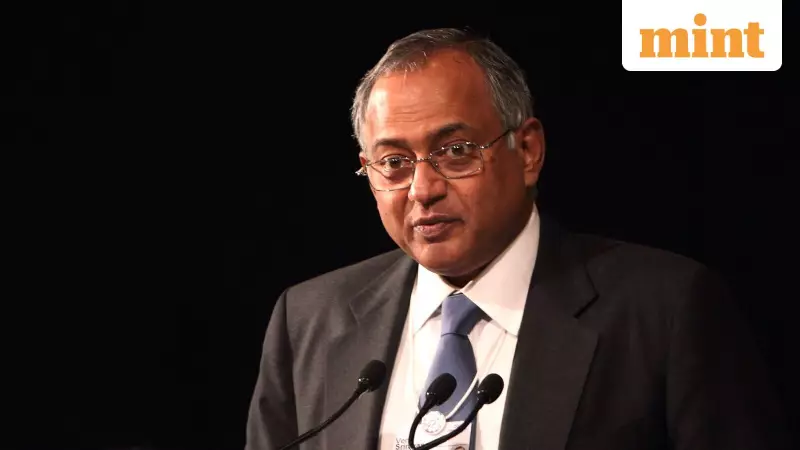
Tata Trusts Face Internal Division Over Key Appointments
In a significant development within one of India's most prominent philanthropic organizations, the Tata Trusts have witnessed internal disagreements over the appointment of new trustees. The recent meetings of Sir Ratan Tata Trust (SRTT) and Sir Dorabji Tata Trust (SDTT) revealed contrasting outcomes regarding the induction of Neville Tata and former Titan Industries chief Bhaskar Bhat.
The Appointment Controversy
Venu Srinivasan, vice-chairman of both principal Tata Trust entities, expressed strong reservations about the proposed inductions during the SRTT meeting. According to three executives familiar with the matter, Srinivasan objected specifically because the matter was not included in the meeting's official agenda and required further discussion.
This opposition resulted in a split decision: while SDTT successfully appointed both Neville Tata (son of Trusts chairman Noel Tata) and Bhaskar Bhat to its board, the SRTT rejected their induction. The disagreement highlights the ongoing governance challenges within the influential Trusts that control majority ownership of Tata Sons.
Ownership Structure and Key Players
The Tata Trusts maintain substantial control over the Tata Group's holding company. SDTT owns 27.98% of Tata Sons, while SRTT holds 23.56%. Combined with other smaller trusts owning 14.4%, these philanthropic entities collectively control 65.9% of Tata Sons.
The remaining stakes are distributed among the Shapoorji Pallonji Group (18.38%), nine Tata Group companies (12.86%), and seven individuals (2.87%).
Key trustees include Noel Tata and retired defence secretary Vijay Singh, who sit on both Trusts. Other members include Pramit Jhaveri (former Citibank India CEO), Mumbai-based lawyer Darius Khambata, and Pune philanthropist Jehangir H.C. Jehangir. Ratan Tata's brother, Jimmy N. Tata, remains a trustee of SRTT but no longer participates in proceedings due to advanced age.
Governance Changes and Meeting Dynamics
The controversy unfolded against the backdrop of recent regulatory changes. A new Maharashtra government ordinance now limits permanent trustees to just a quarter of the board, invalidating Srinivasan's recent appointment as permanent trustee of both SRTT and SDTT.
During the SDTT meeting on November 13, which began at 4:30 PM, Srinivasan was notably absent. Present were Noel Tata, Vijay Singh, Darius Khambata, and Pramit Jhaveri. Khambata proposed Neville Tata's induction, emphasizing that Ratan Tata had "dearly hoped to witness this during his lifetime," while Singh recommended Bhaskar Bhat's name.
Noel Tata recused himself from voting on his son's candidature, but both appointments were approved by the remaining members. The SDTT meeting also addressed the regulatory requirement by changing Srinivasan's role from permanent trustee to a three-year term, which all present trustees approved.
The SRTT Standoff
The subsequent SRTT meeting at 5:30 PM saw tensions escalate. Attended by Noel Tata, Srinivasan, Khambata, and Jehangir, the meeting became contentious when Srinivasan was informed about the SDTT appointments.
According to executives who spoke anonymously, Srinivasan expressed surprise and firmly rejected the resolution, maintaining that the item wasn't on the agenda. Since Tata Trusts require unanimous approval for trustee appointments and removals, this opposition effectively blocked Neville Tata and Bhaskar Bhat from joining SRTT.
Pattern of Internal Differences
This incident marks the third episode of differences among Tata Trustees in the past two months. On September 11, four non-nominee Trust members expressed displeasure with their three representatives on the Tata Sons board, leading to Vijay Singh's removal as a Trust representative.
Last month, another conflict emerged when Noel Tata, Vijay Singh, and Venu Srinivasan opposed the continuation of Mehli Mistry as a Tata Trustee when his three tenures ended, resulting in Mistry's removal from both principal Trusts.
The Tata Trusts continue to navigate these governance challenges while maintaining their crucial role in overseeing one of India's largest and most respected business conglomerates.






